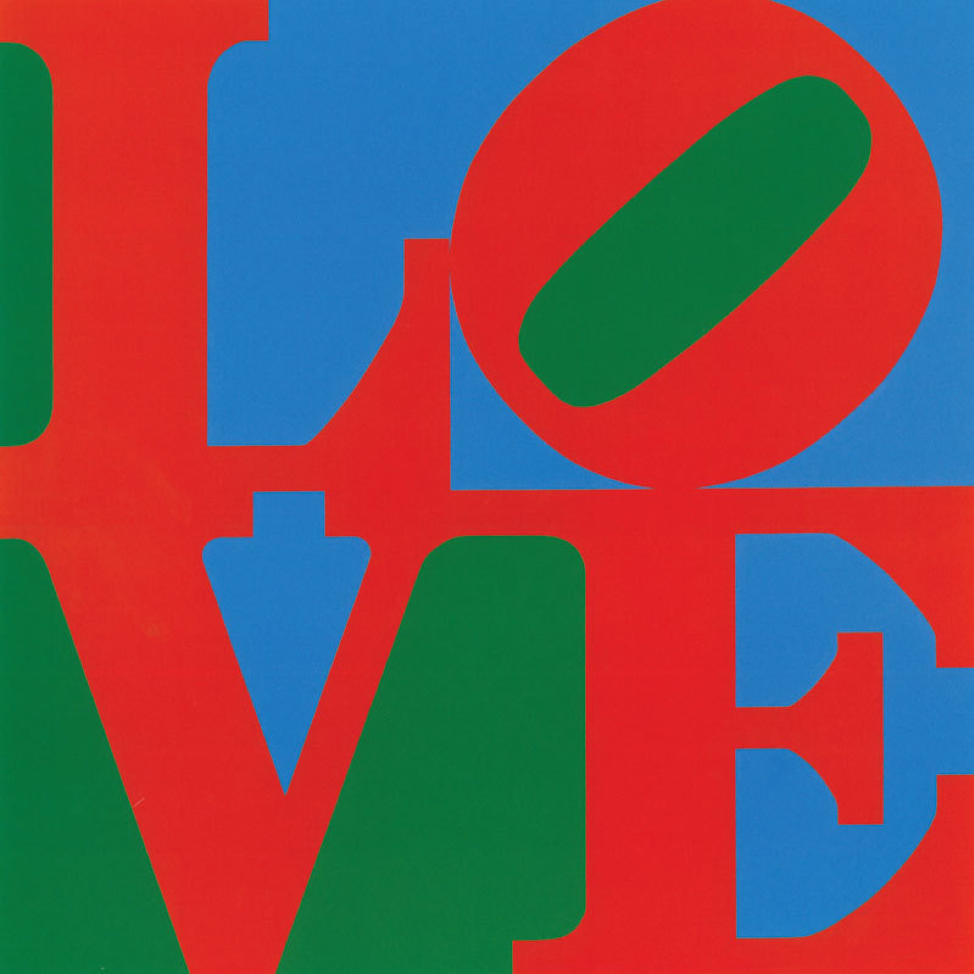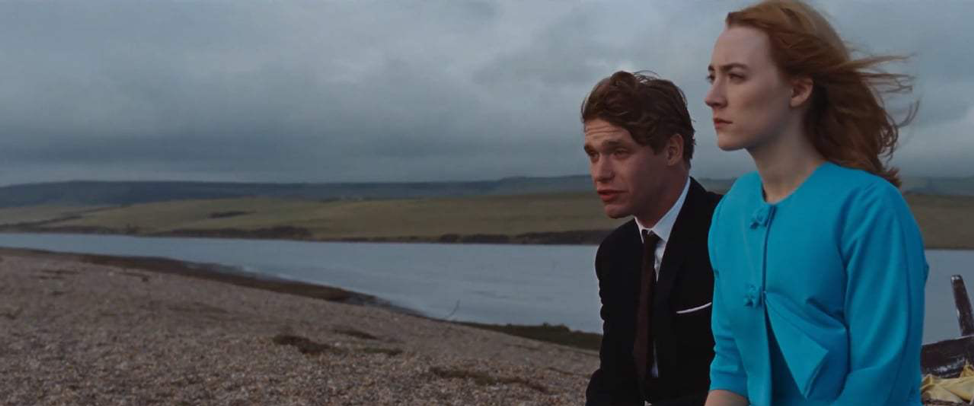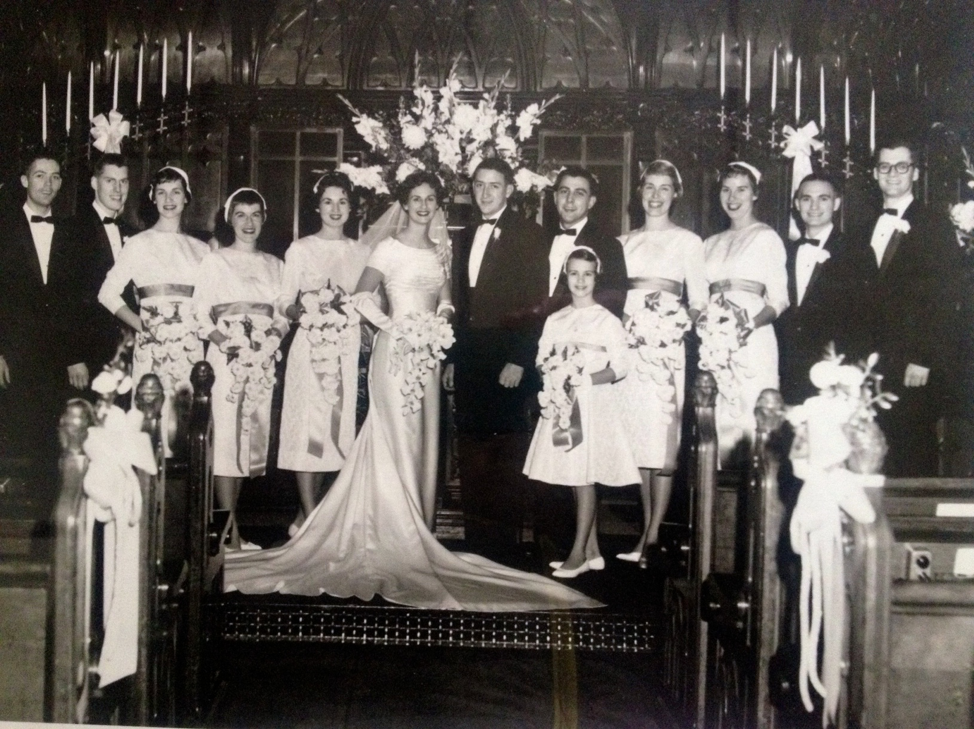Bob Dylan wrote a song about it. Joan Baez sang it for us, and Robert Indiana turned it into art. Love is Just a Four-Letter Word.

But, as they say, it’s complicated, and no more so than in British writer Ian McEwan’s 2007 novel, On Chesil Beach. Set in 1962, the novel is now a film starring Oscar winner Saoirse Ronan and newcomer Billy Howle as the young couple who hold us spellbound as they attempt to be intimate for the first time on their wedding night.
Theirs is a complicated stew of young love, repression, class differences, dysfunctional family and almost Victorian modesty, and it will break your heart. It’s hard to believe today that love and sex could have been that different in 1962 but it was. The world had not yet reached the tipping point that launched the sexual revolution. The Beatles didn’t arrive on the Brit music scene until following year, the San Francisco Summer of Love was five-years in the future, and the birth-control pill wasn’t yet in wide usage.
For those of us who came of age at that time, the novel is a reminder of our own coming of age, of our first serious sexual experiences and of how lucky we are to have moved beyond the repression and strictures of that time. Younger viewers may feel for the characters but it’s doubtful they will ever be drawn into the story in the same way we are.

On Chesil Beach is the story of Florence and Edward, two recent university graduates, on their wedding day at a hotel on the English coast. Early in the film we watch their idyllic courtship unfold, full of hope and family drama. She is an accomplished violinist with a chamber group, he a history major with plans to write a series of books. We cheer them as they fall in love and move toward marriage, but they are both inexperienced and fearful. There are obvious stress lines. Following the wedding they travel to a seaside hotel for a short honeymoon where the crux of the novel plays out. There is a climactic scene at the hotel and a long attempt at resolution on the beach, but it doesn’t end well.
On a personal level, I identified uncomfortably with the characters. Their situation was similar in some ways to my own honeymoon. I was married on New Year’s Eve in 1958, 10 days after my 21st birthday. We only had three days before the start of my wife’s winter quarter at school, so we drove to the Oregon Coast and an almost empty seaside hotel where it was cold and lonely, not romantic. We walked on a windy desolate winter beach, swam in a cavernous indoor pool, and ate alone in the hotel’s large dining room. We also spent a lot of time in bed, but it was not the passionate, joyful experience we had expected and hoped for. We were not as clueless as Florence and Edward, but we too were inexperienced and didn’t know how to talk to each other, especially about sex. There were uncomfortable silences and differences that we ignored. We lasted longer than Florence and Edward, but in the end the things we didn’t know caught up with us. We loved each other and our son, Brent, was the gift born of that love, but ultimately we didn’t have the skills to keep the ship from sinking.
The novel, On Chesil Beach, is dense, and the film is slow and painful to watch, but both are worth the effort. I often find fault with movies based on novels, and this one is no exception, even though Ian McEwan wrote the screenplay for his own novel. I preferred the book’s ending but understand that film is a different medium and needed something more for dramatic effect.
It’s a love story until it turns to tragedy in the pivotal scene. Florence and Edward are soul mates who overcome class and family obstacles but can’t get out of their own way to overcome the fear, ignorance, and insecurity that is holding them back. They are tragic in the Shakespearean sense—their fate could have been avoided but ego and pride prevent them from finding a solution.
Toward the end of the book Edward realizes that their failure was avoidable. “At last he could admit to himself that he had never met anyone he loved as much, that he had never found anyone, man or woman, who matched her seriousness.”
“When he thought of her it rather amazed him, that he had let that girl with the violin go. Now, of course, he saw that her self-effacing proposal was irrelevant. All she had needed was the certainty of his love and his reassurance that there was no hurry when a lifetime lay ahead of them. Love and patience—if only he had them both at once—would surely have seen them both through.”
The lyrics of Love is Just a Four-Letter Word help us think differently about love, but the conclusion of On Chesil Beach reminds me of another Joan Baez song that resonates with its tragedy. This is Diamonds and Rust https://www.youtube.com/watch?v=2MSwBM_CbyY

































